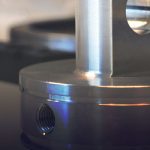Do you ever wonder if you’re getting good value from your suppliers?
Maybe part quality is below-average, but you’re satisfied with the price. Still, you wonder if you could get better quality in the same price range.
Or maybe quality is good, but your budget is being stretched and you’re seeking ways to achieve similar quality at lower cost.
Either way, it’s hard to take the next step without a deep understanding of the ins and outs of machine shop pricing. So how can you know whether you’re getting the best – or at least fair – value?
It starts with understanding what goes into a machine shop’s rates.
This will put you one step closer to knowing whether you’re really getting good value from your suppliers. It might even help you negotiate better rates.
Let’s pull back the curtain and see what’s going on behind the scenes.
The inside scoop on rates
There are a lot of factors that go into machine shop rates.
One of the biggest factors is overhead. Shops that use big, powerful machines generally charge more to cover their high overhead costs. In some cases, these machines are under-used, forcing the shop to charge higher rates to cover their costs.
Another factor is efficiency. The more efficient the supplier, the less they can afford to charge for each job. Really efficient machine shops can get more done, and can therefore charge less per part. However, their hourly rates might be higher.
Shops equipped for high-volume production tend to charge more per hour, but because they’re set up to machine multiple parts at a time, they’ll be able to finish production runs a lot faster than smaller job shops. The higher hourly price might be a good tradeoff for a fast delivery – and potentially a lower overall job cost.
Job complexity is also important. Some machine shops are equipped to take these on, while others are better-suited for routine jobs. Complex parts require high-precision equipment and they take longer to produce, so naturally suppliers will charge more for them. Prototypes fall into this category too. They’re almost always more expensive to produce on a per-part basis because of high set up times.
Let’s talk $$$
Now let’s jump into some actual price ranges.
You can find machine shops charging as little as $40-50/hour. As always, you get what you pay for. Shops like these will do most jobs on manual mills and lathes. You could save a lot of money at a shop like this if you have very wide design tolerances and quality isn’t an issue.
The average machine shop in the U.S. charges $60-80/hour. Where a company lands within this range depends in part on overhead costs, including electricity costs in their state, but mostly on the quality of their work. Companies with the capability to produce high-precision, complex parts will fall into the higher end of the range.
Top-quality parts suppliers charge more than $100/hour. These are large shops with state-of-the-art machines and the most experienced machinists. They need to charge more to cover their significant overhead costs. But you can expect more value in the form of high-precision parts and fast production runs.
The bottom line
Don’t make outsourcing decisions based solely on an hourly rate.
Consider the following . . .
Does your supplier have the right tools for your job? The most expensive machines are not necessary the best. Operator experience is just as important as the technology used. The biggest challenges in machining are making the right fixture for your part, choosing the most efficient feedrate, and selecting the right tools. Operator error leads to more downtime, higher tooling costs, and unexpectedly high production costs.
Are you paying for your supplier’s overcapacity? You want to work with a supplier that has the machines and the capabilities you need. You don’t want to stretch their capabilities too much. And you don’t want to underuse them. Either way you’ll pay more than you should.
So, where should you send your work?
It depends.
You can find opportunities to save your budget on less critical parts at low-cost suppliers. But beware of trying to save a dime on parts that require high-precision. Any parts that exceed your design tolerances can cause big problems down the line. It’s best to pay more upfront for quality parts.
Remember: don’t get caught up on hourly rates. The actual job cost will be quoted based on a per-batch or per-part basis. Two suppliers that charge $50/hour could quote very different numbers for the same job. Similarly, a supplier with a $100/hour rate might quote a lower batch price than a supplier with a $50/hour rate because they’re able to produce at volume more efficiently.
In the end, you have to go with the supplier that meets your speed, price, and quality needs all at once.
I hope this helps your decision-making process. If you have any questions about machine shop rates, let us know.




